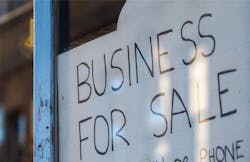Is it always best to own your shop’s building? Are there any upsides to renting?
How those questions are answered depends on where a given collision repair shop owner is at in his or her career.
“I’m a big fan of ownership in general,” says Matt Lachowitzer, owner of Matt’s Automotive and Collision Center in Fargo, North Dakota, alongside four more mechanical repair shops in the Fargo area.
Though Lachowitzer prefers to own the buildings out of which his businesses operate, he understands the challenges inherent to taking on the investment of ownership.
“My biggest thing is understanding that if you buy the building you have to be able to save money and think about the roof and snow removal, taxes …” he says. “If you don’t want those added stresses, then renting is a good option for you …. Some people, [especially those just starting out], just want to run their biz and go to work.”
Here’s more on what to consider when it comes to renting vs. owning.
Mind Your Lease
Lachowitzer got his start as a mechanical repair shop owner more than a decade ago; he acquired his collision repair shop, which has annual sales of $2.4 million, five years ago.
He owns the body shop’s building, planning this year to double its space with a $1 million addition. He rents the space for one of his four mechanical repair shops, having bought an existing shop that was an original tenant in its strip mall location.
The shop’s legacy coupled with favorable terms and longtime control of the lease make that situation work, Lachowitzer says.
Ian Morton, the owner of two southern Arizona shops, Fix Auto Tucson and Fix Auto Sierra Vista, says he rents the space for his Tucson location, although “not by choice.” He acquired his Tucson shop, along with his landlord, in January 2019.
“Renting comes with more restrictions on what I’m able to do and what I want to do in terms of capital investments,” Morton says. “I’m very strategic about investing money into the property that I rent.”
That means that while he remodeled the Tucson shop’s office space, he says he didn’t do it to the extent he would have if he’d owned the building.
Still, the situation has its upsides. Though Morton says the opportunity to buy the building likely isn’t coming anytime soon (it’s been owned by the same family for decades), he negotiated the lease and, with some work, has first right of refusal to purchase the building should it go up for sale.
The building, a distinctive pink with a layout that can produce strong revenue, $4.2 million per year, also has the advantage, he says, of having been a collision repair shop for some 40 years.
“Moving the business is probably not what we’ll look at doing,” Morton says. “We'll just look at expanding the footprint in the market.”
Why To Buy
Morton, who came up in the business working at his family’s shop before serving in the army and then working at the shop, along with stops at the corporate level for a couple large MSOs, owns the building out of which his Sierra Vista shop operates.
He purchased the building, a 9,600-square-foot former electrical supply warehouse, for $400,000 in October 2019.
Though Morton says the previous owner of the building was initially not interested in selling to him, once that owner understood the extent of renovations planned for the space, which ended up costing $200,000, he opted to sell.
“Now, anything that I want to do, I don’t have to call and get my landlord to agree to letting me knock out this wall,” he says. “It’s just, ‘Talk to my construction team, get the permits, and make it happen.’”
Morton’s investment is already showing returns–he says the property value of his Sierra Vista shop has doubled since he purchased it. The shop is posting annual sales of $2.2 million per year.
Morton and Lachowitzer both say they have plans for expansion, and are only interested in acquisitions where they’d have control of the property.
“Every location we look at, for mechanical or collision, we disqualify them if they’re not a building I can buy,” says Lachowitzer.
Morton says he’s on the same page: “I’m at the point where more than likely, any acquisition would require the ability to acquire the land.”
Think Long Term
While control of a property is a major benefit of ownership, the most significant benefit, Morton and Lachowitzer agree, comes down the line.
“It’s a long-term investment; you have to think about it that way,” Lachowitzer says, explaining that after a couple decades of work, you could build a business that’s worth some cash, though the real payoff is in the real estate.
Pay off the mortgage on a building over 20 years and you might be in for a payday of $1 million or $2 million, he says.
“That’s where you’re going to get the return on your hard work,” Lachowitzer says.
Morton, who also owns a commercial property in Sierra Vista that he rents to a large MSO (see box), says he sees his future expanding beyond what’s been a working life in collision repair.
“The long-term strategy is the financial freedom and security that are in the property,” he says. “That’s it.”
Getting both his shops going just prior to the COVID-19 pandemic means he’s faced any number of challenges, says Morton, something that has shifted his perspective. He says he’s not necessarily in the collision repair business–he’s in the investment business.
“Being in collision,” Morton says, “is funding my investment strategies.”
Sidebar: A Passive Income Stream
Ian Morton, who owns two southern Arizona shops, Fix Auto Tucson and Fix Auto Sierra Vista, is also a commercial property landlord–it just so happens he rents a building to a large MSO.
Owning the property prior to acquiring his two shops, Morton says it had the necessary zoning for it to be a collision repair shop, so he rented it out as such.
“The goal there was to definitely have a passive income stream,” he says. “I’m not solely focused on owning body shops.”
Morton says he’s always on the hunt for more commercial properties, though properties for collision repair are in short supply–zoning and compliance are a hurdle, as is the potential investment needed to make them suitable.
Those challenges, he says, haven’t turned him off from being a landlord.
“It’s been going well, I’m learning, we made some mistakes through the process, and as my legal team and I write up these new agreements, there are some things that we’ll definitely do differently in the future,” Morton says.

